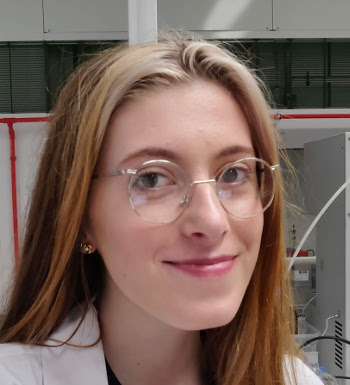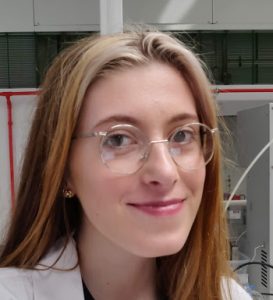
February 24, 2021, by jicke
“Mouldability” of University of Nottingham degree apprenticeship supports Reach Separations’ workforce development
Reach Separations, a specialist in chromatography for the analysis and purification of small molecules, has highlighted the role that the University of Nottingham’s Laboratory Scientist (Chemistry) level 6 degree apprenticeshipis playing in shaping its future workforce.
The company was founded in 2011 due to the need for quality separation science services in the UK, and what started out as a small venture in a tiny laboratory staffed by a single chemist has since grown into Europe’s leading provider of both chiral analysis and purification services.
Reach now occupies multiple laboratories at its home in Nottingham’s premier science park – BioCity – and its apprentices on the five-and-half-year programme play a significant role in supporting the organisation’s Separations Scientists, whilst concurrently studying for a BSc (Hons) Chemistry with Industry at the University of Nottingham.
The first apprentice, Ellie Ancliffe, started the Laboratory Scientist (Chemistry) level 6 degree apprenticeship in summer 2020, having initially joined Reach Separations at the age of 16, and upon graduation will become a fully-fledged Separations Scientist at the company. Reach Separations is also currently recruiting for a second degree apprenticeship role as it seeks to build on the “self-evident success” of the programme.
Technical Director Phil Abbott said: “We have a long-standing relationship with the University of Nottingham, and have graduates from the University within our team, but we were attracted by the degree apprenticeship route because with the purification process we need skilled scientists to do the work. ‘Mouldability’ is a key term we use, and this is the perfect way for employees to effectively learn the ropes on the job whilst studying a formal qualification, and accelerate their own progression within the company.”
Employer apprentices undertake an initial assessment to determine their existing level of skills and knowledge and the University then builds a personal plan for their learning. Modules covered range from structure, periodicity and coordination chemistry, organic molecules and their reactivity, and spectroscopy, energy and bonding; to general inorganic chemistry, synthesis and spectroscopy, and energy, spectroscopy and solid state chemistry. Professional and business skills modules runs throughout the course.
“By the time Ellie, and anyone else on the degree apprenticeship programme, graduates they will already have done the job for five years giving them in-depth knowledge of the company and a real edge,” Phil explained. “As a smaller business with 15 employees right now, I think we are definitely standing out by taking on degree apprentices because in my experience we are in the minority. I would definitely recommend this route to other employers because the outcome is you get a highly specialised individual.”
For businesses, large and small, degree apprenticeships are a cost-effective approach to workforce development, and those with a wage bill over £3 million can fund the programme from their apprenticeship levy. Firms with a wage bill under £3 million can still access this programme for their employees, and may be eligible for 95% government co-investment.
“The financial side of the degree apprenticeships model is very attractive,” Phil said. “We are hugely committed to training and development, and we offer lots of in-house and external opportunities for our team. This is helping us to provide pharma and drug discovery companies with a Europe-leading approach to supporting the purification process, bringing chemists expertise, convenience and speed of response.”
Ellie, now 18, added: “Choosing to gain a degree via an apprenticeship rather than via the traditional route allows me to study and get paid at the same time. Exposure to a real workplace gives a much greater appreciation of how my studies can shape my future career.”
For more information on the University of Nottingham’s Laboratory Scientist (Chemistry) level 6 degree apprenticeship please go to https://www.nottingham.ac.uk/chemistry-bpu/innovation-training/laboratory-scientist-chemistry-degree-apprenticeship.aspx.
No comments yet, fill out a comment to be the first



Leave a Reply